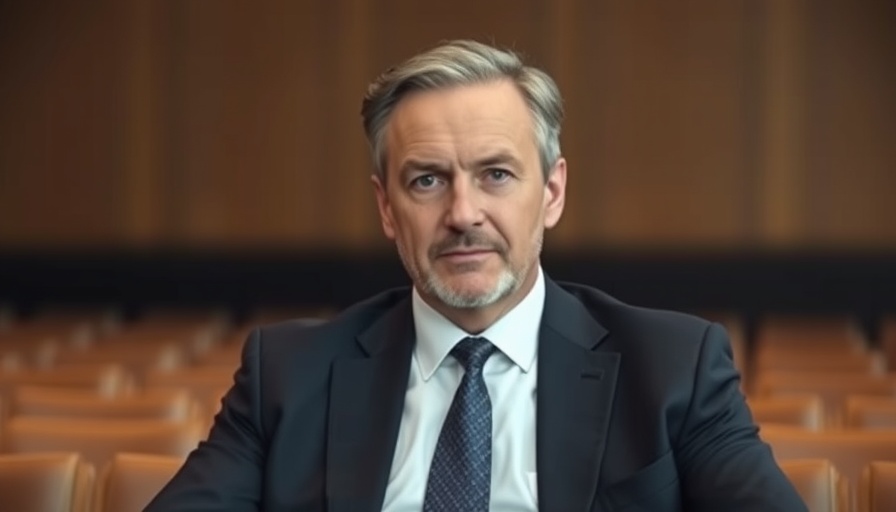
Understanding Mkhwanazi's Threats to Media Freedom
In a deeply concerning episode for South African democracy, Lieutenant-General Nhlanhla Mkhwanazi's recent verbal assault against journalists highlights a crucial conflict between state power and media integrity. His call for heightened surveillance of journalists and punitive measures against them marks a significant departure from the principles enshrined in the nation's Constitution, threatening not only media freedom but the broader democratic fabric of South Africa itself.
The Dangerous Precedent of State Control
During his testimony before Parliament, Mkhwanazi boldly asserted that the security sector should monitor journalists more closely, drawing fire from various media entities and civil rights activists. This escalation symbolizes a worrisome trend where governmental authority seeks to exert control over press freedoms, driven by an agenda that could see the nation morphing into a police state. The implications for democracy are profound; if journalists become targets of state-directed counter-intelligence operations, the institution of media, which serves as a watchdog in democracy, will be severely compromised.
Surveillance and the Erosion of Trust
At the crux of Mkhwanazi's proposals lies a blatant distrust toward the media, which he claims clouds the truth regarding corruption within police ranks. His assertions, particularly those implicating various journalists—without evidence—are alarming. This strategy of wielding power through intimidation risks creating a chilling environment where journalistic inquiry is stifled, thereby eroding public trust in both the government and the media.
Comparative Analysis: Global Perspectives on Media Freedom
Examining Mkhwanazi's threats against the backdrop of global trends sheds light on the seriousness of the issue. From Turkey's crackdown on dissenting voices to the increasing authoritarianism observed in various countries, South Africa's trajectory could replicate those ominous patterns if the trend of lavish allegations against journalists continues. The preservation of free press becomes paramount in countering potential abuses of power and ensuring transparency in governance.
Consequences for South African Democracy
The stakes are especially high in the context of South African politics where corruption, highlighted through numerous scandals and ongoing investigations, has left the public yearning for accountability. Journalist integrity and the role of the media as protectors of democracy are central to ensuring that these issues aren’t swept under the rug. As Mkhwanazi calls for surveilling 'problematic journalists,' it’s essential to ask who exactly defines 'problematic' within the limelight of political pressure and what that means for investigative reporting vital to democratic health.
Public Sentiment: Understanding the Risks
The public reaction to Mkhwanazi’s statements has included widespread condemnation from civil rights groups and media organizations, reiterating a grave concern that his actions may unjustly criminalize journalism. When power attempts to silence dissent, one must consider the psychological implications on society—fear and apathy could dissuade the next generation of journalists from pursuing truth in the public interest.
Actionable Insights: Resisting Authoritarianism
As professionals and citizens, there is a collective responsibility to uphold media freedoms and advocate against authoritarian tendencies. Engaging in discussions about the role of the press, supporting independent journalism, and standing up for press rights can create a protective barrier against such threats. Activism in the current climate is not just about resistance; it involves actively fostering environments where journalism can thrive free from intimidation.
Conclusion: Advocating for Media Freedom
The unfolding narrative surrounding Mkhwanazi’s threats is a wake-up call for all South Africans. As scholars and professionals, recognizing the foundational role of a free press in defending democracy cannot be overstated. It is paramount to ensure the right to criticize, probe, and expose corruption remains robust, enabling journalists to hold those in power accountable effectively. It’s time for stakeholders to mobilize—take action and advocate support for media freedom.
 Add Row
Add Row  Add
Add 




Write A Comment